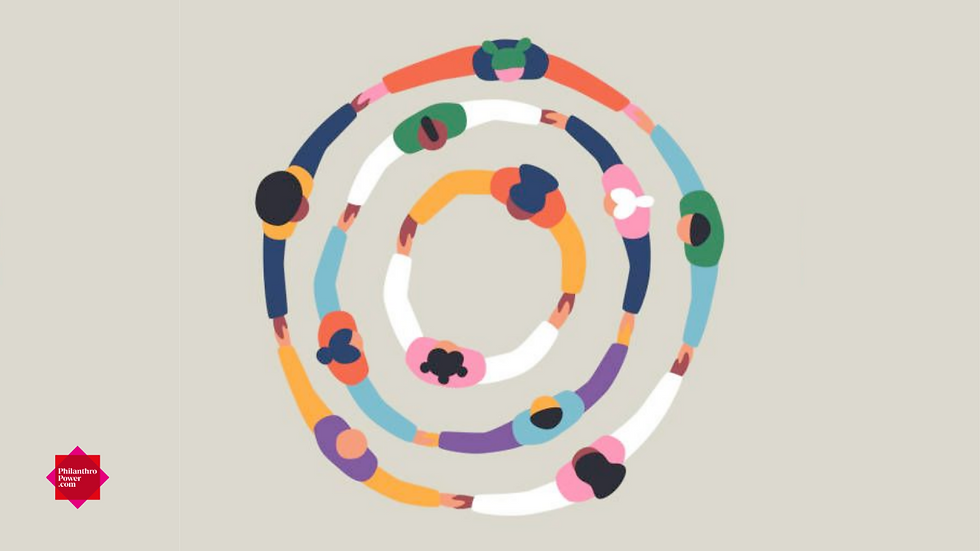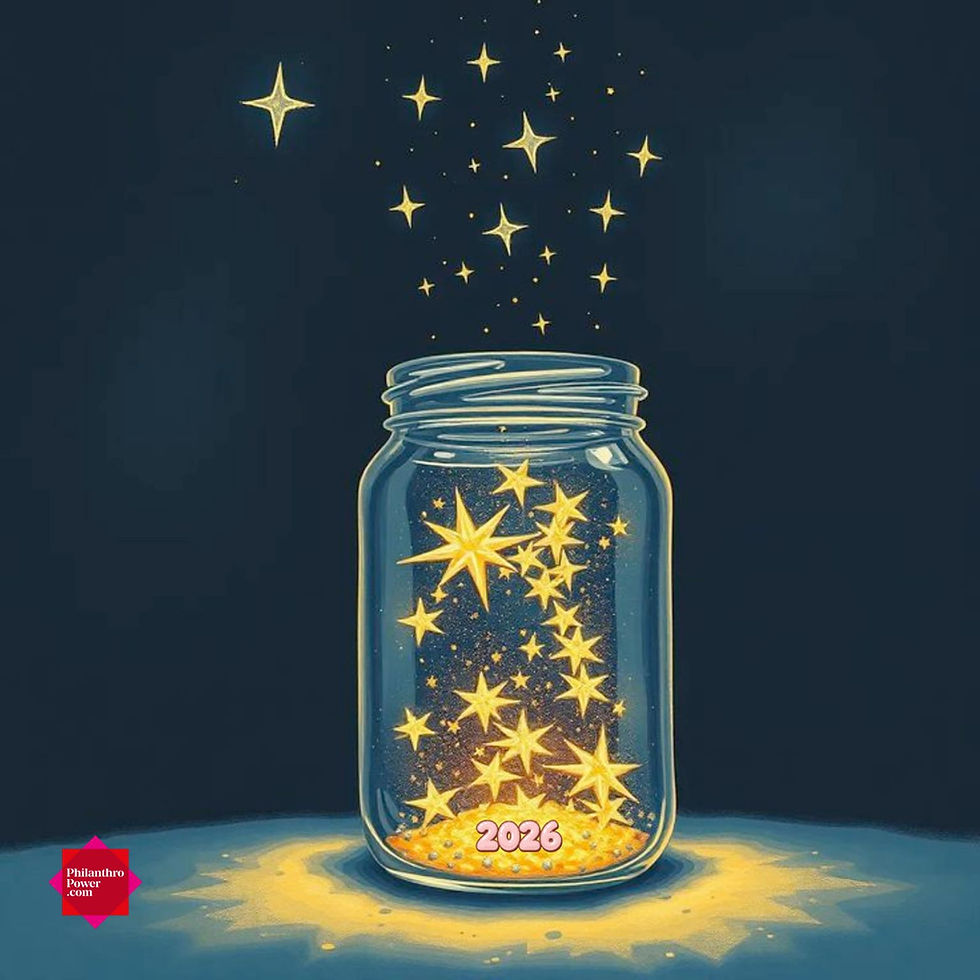Let's talk about ... relational philanthropy
- joy10727
- Mar 17, 2024
- 3 min read
Updated: Mar 18, 2024

Have you considered the impact it makes when grantmakers and grant seekers cultivate relationships as a stepping stone to building partnerships?
At a recent major philanthropy forum in London, a practitioner shared a striking statistic: only ONE out of every 23 grant request applications is successful. I am sure you can envision the extensive hours invested in crafting, refining, and proofreading these applications, even with the help of AI in the background.

Now let's think about the wish of a grant seeker. A survey of 1,200 UK charities conducted in 2021 by the Institute For Voluntary Action Research, under its Open and Trusting Grant-making initiative, revealed that 75% of survey participants would appreciate greater transparency from grantmakers regarding the success rates at different stages of the application process. This suggests that grant seekers often feel like they are hoping for success without clear expectations, akin to wishing on a shooting star. It also highlights a significant need for funders to provide more clarity and reduce the frustrations inherent in the grant-seeking process.

Now, consider the significant time investment required for grantmakers committed to genuine philanthropy. They must sift through stacks of grant applications, a task that becomes especially daunting if they depend on paper-based processes and have only a few staff members dedicated to this task. Such grantmakers need to shortlist suitable applicants carefully. Despite an application looking impressive on paper, a crucial question persists for grantmakers encountering a new applicant: "Can I trust everything presented in this application if I have not worked with this grant seeker before?"
A possible solution to enhance efficiency and alleviate frustrations for both parties could be to completely abolish grant applications and shift the focus to relational philanthropy. This solution may seem radical.
But what does 'relational philanthropy' entail? Envision a scenario where grantmakers and grant seekers take the time to deeply understand each other's missions, values, and goals. This would lay the foundations for partnerships rooted in mutual trust and shared objectives, resulting not only in short-term benefits but also in lasting change.
My experience in securing funding for an eye health programme in South Sudan is a prime example of the effectiveness of a relational approach. Overwhelmed by the numerous grantmakers who require extensive due diligence documents alongside grant applications, I opted for direct outreach, thereby bypassing the exhaustive grant application process. This method allowed me to establish a connection with a wealth manager in Switzerland, who subsequently introduced me to a grantmaker dedicated to supporting the people of South Sudan. By leveraging my enthusiasm for developing meaningful partnerships, I initiated a collaboration that led to a series of further alliances. These efforts not only enhanced the living conditions of mothers, children, and grandparents with disabilities in IDP camps in South Sudan but also united a multitude of partners in a coordinated effort toward a common goal.
This theme of relational philanthropy was further emphasized during a webinar I recently co-hosted with a dear peer. In this session, we delved into how enduring, relationship-based partnerships offer mutual benefits to both grantmakers and grant seekers, contrasting these with the less effective transactional partnerships. We concluded that by fostering strong relationships, grant seekers can reap substantial benefits, including increased visibility, comprehensive support that extends beyond mere financial assistance, and a reduction in the necessity for constant reporting, all underpinned by a foundation of trust-based philanthropy. Similarly, grantmakers can achieve considerable advantages, such as gaining deeper insights into the projects they support, mitigating risks more effectively, and reducing the expenses associated with the perpetual quest for new grant-seeking partners.
For further reflection, I have summarized some benefits of prioritizing relationship-building (though not exhaustive) for both grantmakers and grant seekers:

Now that we have explored the transformative potential of prioritizing relationship-building in grant-making and grant-seeking endeavors, I believe that we can embrace the power of meaningful connections.
I would be thrilled to offer my guidance and share insights from my own experiences to help you fully embrace the principles of relational philanthropy. Together, we can do better. Get in touch at joy@philanthropower.com
#RelationalPhilanthropy #GrantMaking #GrantSeeking #MeaningfulEngagement #PhilanthroPower #TrustBasedPhilanthropy
Some clarifications on the terminology used in this blog: Grantmaking conveys grantmaking foundations and grant seekers conveys non-profit organizations who implement programmes.




Comments